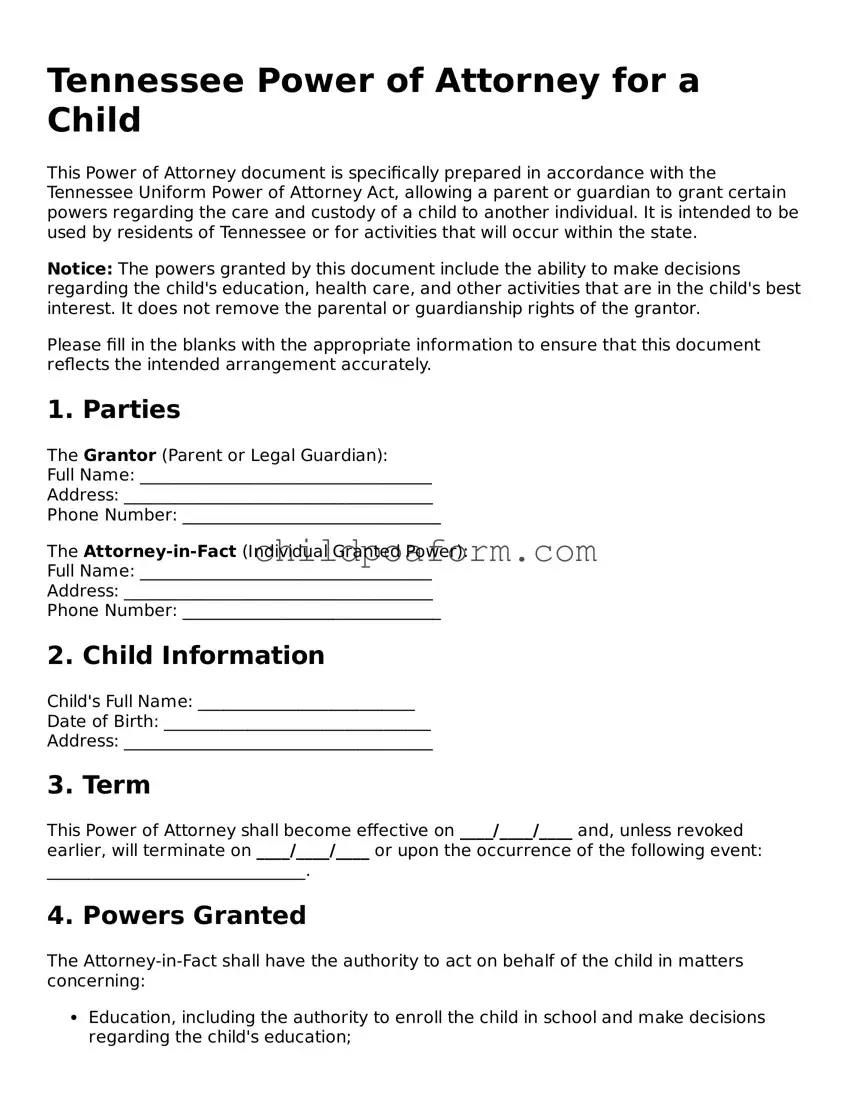Instructions on Utilizing Tennessee Power of Attorney for a Child
Creating a Power of Attorney for a Child in Tennessee is a crucial legal step for parents or guardians who need to temporarily transfer their parental rights or responsibilities to someone they trust. This could be due to various reasons such as being away for a certain period, medical incapacitation, or military deployment. Understandably, navigating through the completion of this form may seem daunting at first, yet with clear, step-by-step guidance, the process can be made simpler and more straightforward.
- Begin by thoroughly reading the form to familiarize yourself with its requirements and stipulations. Understanding the extent of authority you're granting is vital.
- Fill in the child's full name and date of birth in the designated sections at the top of the form.
- Enter your full name (as the parent or legal guardian) along with your contact information, including your address and phone number.
- Identify the person you're granting power of attorney to. Include their full name, relationship to the child, and their contact details similarly.
- Specify the duration of the power of attorney. Clearly state the start and end dates, ensuring they align with the period you anticipate being unable to fulfill your parental duties.
- Detail the powers you are transferring. This includes decision-making related to the child’s education, health care, and everyday care. Be as specific as possible to avoid potential ambiguities.
- Review the sections pertaining to medical and educational decisions. If additional specifications or limitations are necessary, include them to ensure those acting on your behalf follow your wishes accurately.
- Sign and date the form in the presence of a notary public. The presence of a notary ensures that the document is legally binding and that your signature is verified.
- Have the designated attorney-in-fact (the person you are granting the power of attorney to) sign the form as well, acknowledging their acceptance of the responsibilities you’re entrusting them with.
- Finally, store the form in a safe place and provide a copy to the attorney-in-fact. It’s also wise to share copies with relevant institutions (such as your child's school or healthcare provider) to inform them of this temporary transfer of parental authority.
By following these steps diligently, you ensure that your child's affairs will be managed according to your wishes, even in your absence. It provides peace of mind knowing you’ve taken the necessary legal steps to secure your child’s well-being through a trusted individual of your choice.
